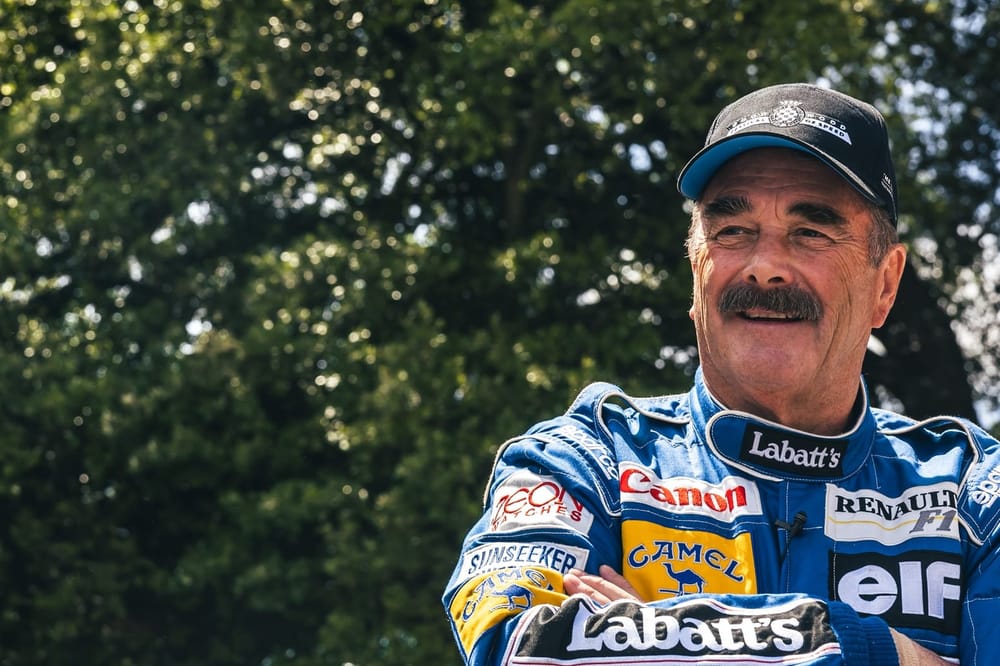Up Next

Nigel Mansell was a key protagonist in one of Formula 1’s greatest eras and a major player in so many of the storylines that we’ve delved into in our Bring Back V10s Podcast.
So when we gave The Race Members’ Club the chance to put their questions to Mansell, it was no surprise the response was enormous.
The Race Members Club is now also available on Patreon - head there to find out more about the additional content on offer, a new way of accessing it, and to get other opportunities like this chance to quiz the 1992 F1 world champion.
We put as many of your questions to Nigel Mansell as we could - plus a few of our follow-ups - ahead of an event promoting UK Youth, the charity he is president of, at Williams F1.
As you’d expect, the answers were revealing and typically ‘Mansell’.
Do you regret not spending more time in America, taking a couple more titles and maybe an Indy 500 or two?
Derek Hourigan
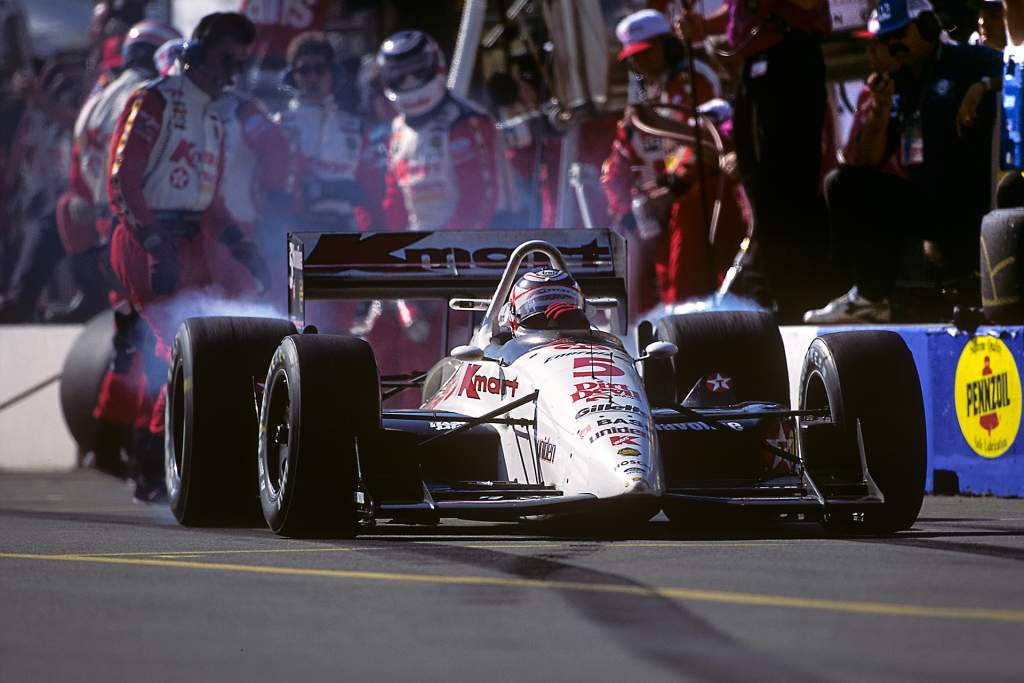
Regret is probably the wrong word. We had several changes in direction. No one knew that Ayrton was going to die at Imola in '94 and I was really happy [in IndyCar]. I signed another three-year contract in IndyCar and I would have been there racing.
But the powers that be of Formula 1 wanted me back because of not having a world champion racing. Then politics got in the way, and then circumstances changed and in the end, I'm a sportsman not a politician. I didn't like the politics so I stepped aside. It's disappointing that we got the end of our career messed with in the way that it was.
And while there’s no Indy 500 win on your CV, you obviously showed that you absolutely could win it? (The Race)
The thing is, they deliberately robbed it from me with a few laps to go. They put the full course yellow out and there was no problem to [justify] putting a full course yellow out. They obviously didn't want a rookie to win and I got jumped on the restart, which isn't exactly to the book.
But I came third at my first attempt, and I feel like I was robbed from the win. I don't have a problem with that. I did it for two years and then the following year, an idiot [Dennis Vitolo] under a full course yellow almost killed me.
Indianapolis is a very dangerous race and if you happen to be in the wrong place at the wrong time, you can lose your life real quickly. So to go and do two races and show a good turn of speed was OK.
We had multiple versions of this question. Do you think you’d have beaten Alain Prost at Williams in 1993 and do you regret not staying on?
Scott Pannell/Steven McDermot/Richard McClure
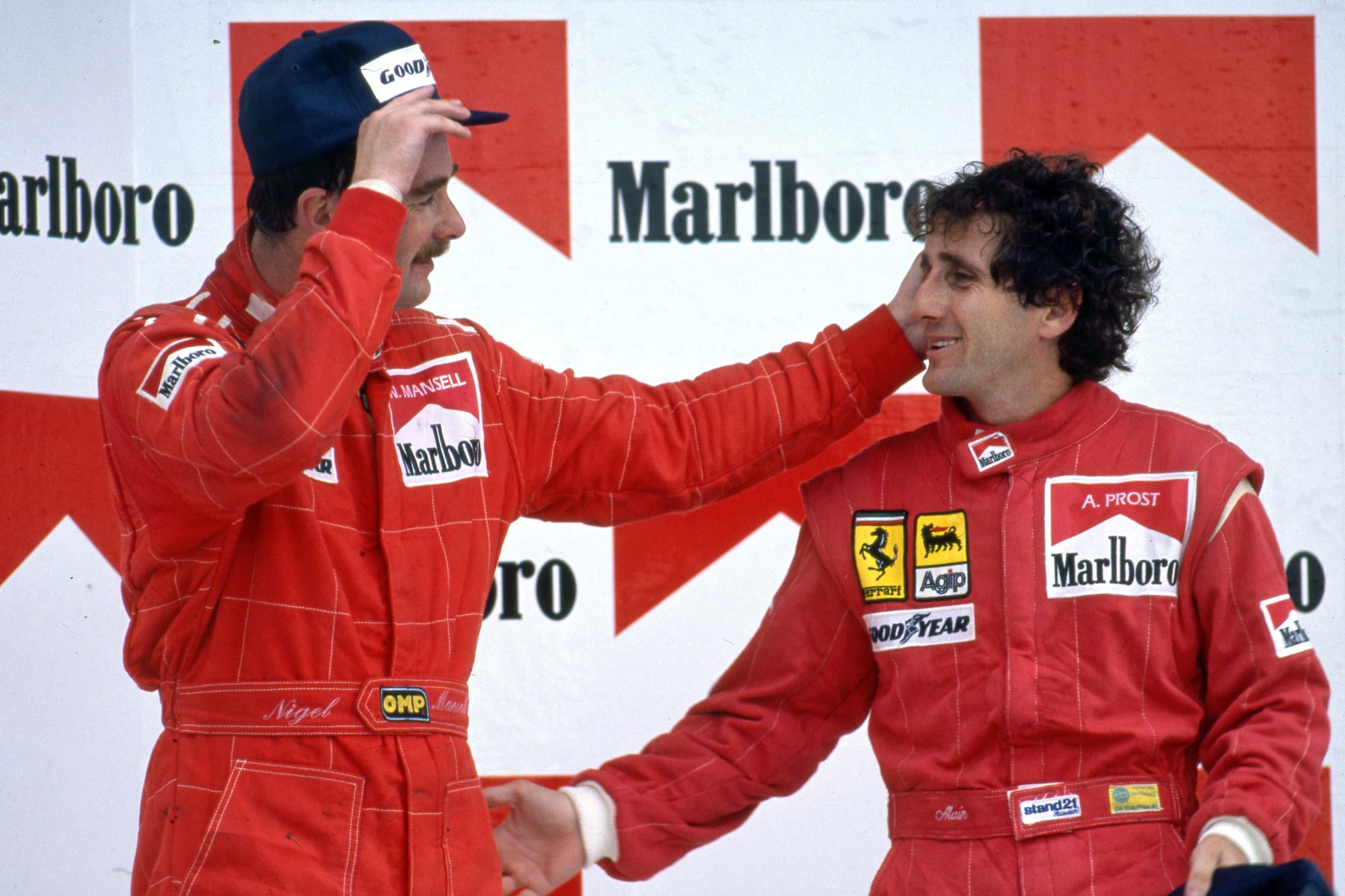
I'd have brained him. I’d have no problem whatsoever. Not being arrogant, I was so quick in that car.
But again, they didn't want me in the team, Prost didn't want me in the team. It was Renault backing, Renault fuel, Renault sponsors, the whole lot. And that's why I only had a contract for two years. My contract finished at the end of that year and it was very public, I got the world championship and then I was told I wasn't required the following year.
That's not me saying I didn't want to be there. And then they offered me a job for half the salary. So yeah, it was really smelly.
How did you like touring cars and is there a reason you didn’t participate in it for longer?
Edward Graff
After a dramatic appearance in the British Touring Car Championship’s non-championship post-season event in 1993, Mansell took on a three-round part-season with the West Surrey Racing-run works Ford team in 1998. He led in a wet race on his debut weekend but other outings were less fruitful.
Yeah, not really. It was like a fill-in type thing. And I think the manufacturer was very naughty because we had a fantastic race in the rain at Donington Park, I went from last to first, and they got so much publicity.
We were supposed to be getting development money for the car and the team and because they got such a fantastic response and had their value, they pulled all the funding. And you go, 'Well, how can you race without the funding and developments and everything else?' So they were a bit naughty.
And I felt sorry for the team owner [WSR boss Dick Bennetts] because he was a great guy. I enjoyed it to a point, but it was very mild compared to Formula 1 and IndyCar.
Do you think you’d have beaten Michael Schumacher and Damon Hill to the 1995 title if Williams had signed you?
James Nicholson/Anssi Rualmo
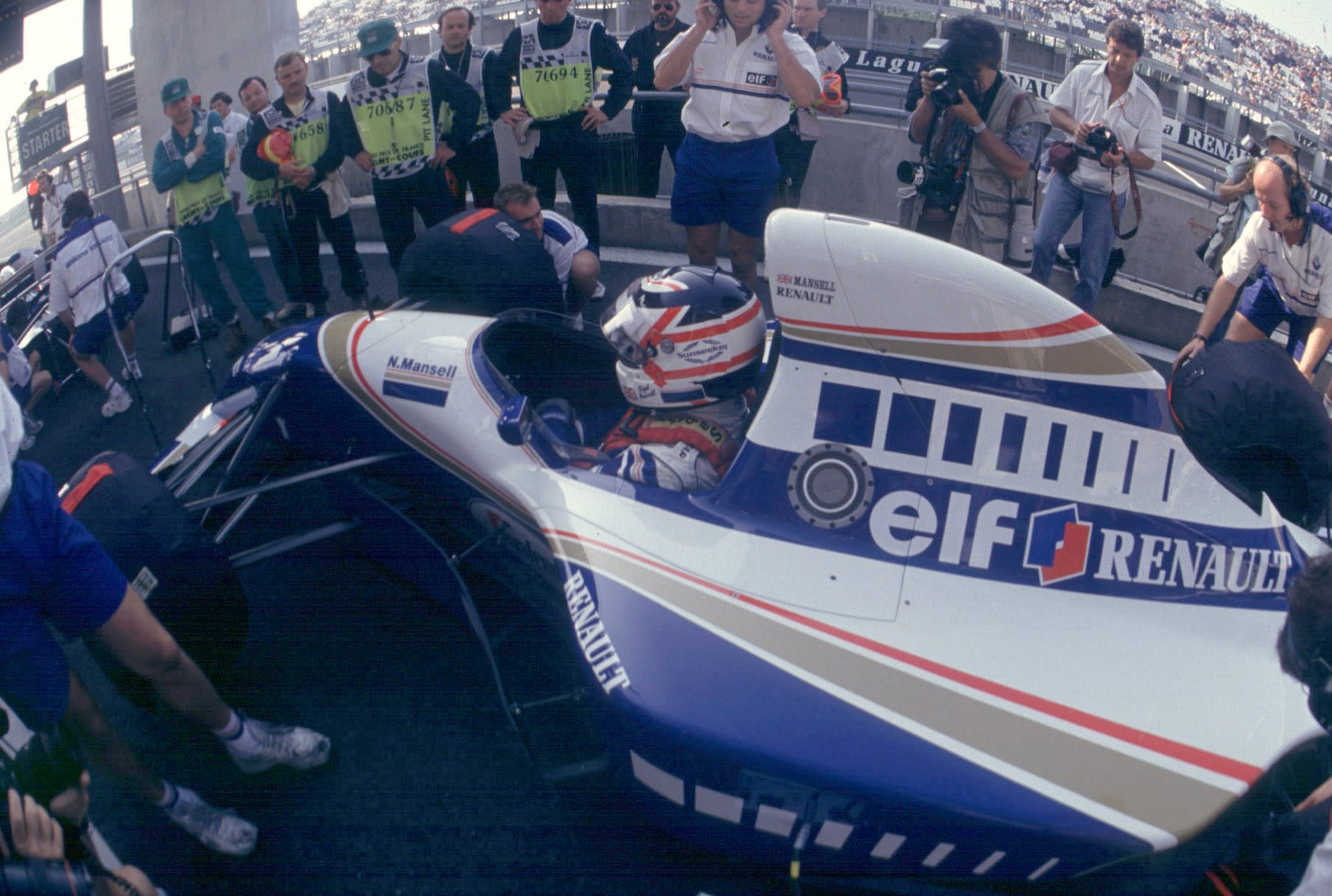
I think I proved that in 1994. Who was on pole position for the last race? I'd only driven the car four times in two years and I was on pole position in Australia. So you have your answer there.
How close did you come to driving for Jordan in 1997 and what made you decide against it?
Mathew McCarthy/Mark Martin
Mansell tested for Jordan at the end of 1996 but the test didn’t develop into a contract and the seat ultimately went to Giancarlo Fisichella.
I think the situation with that is you have to have the sponsorship and the sponsors, and you have to have the mindset in the world to do something. It was great to have the tests, but I think the offer that might have been available wouldn't have been as I wanted. So it was just an enjoyable time.
Aside from the Williams FW14B, which was your favourite car of your F1 career?
Simon Partridge
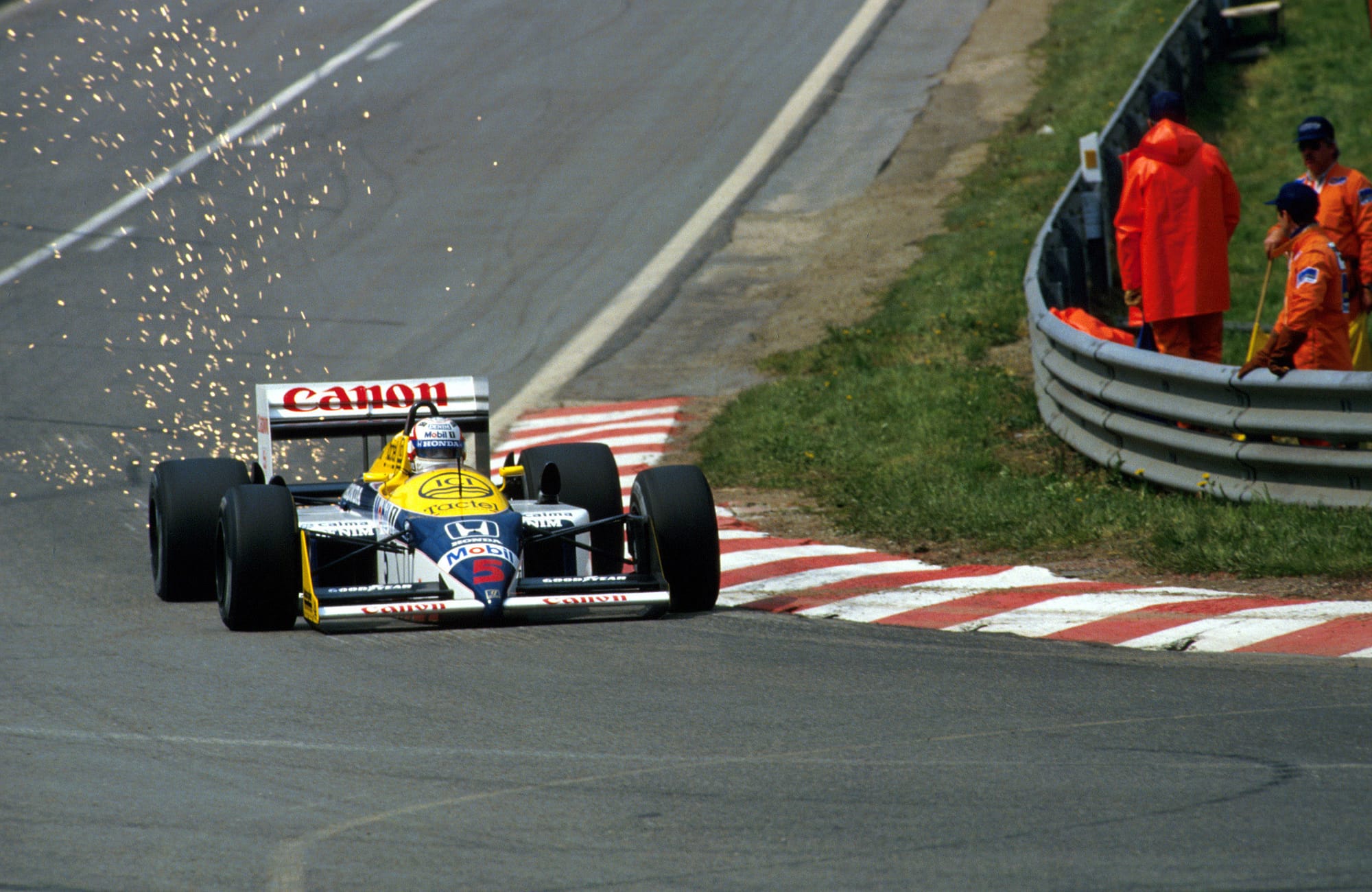
The Williams FW11B, the turbo car [for 1987]. Fantastic. Wheelspin in sixth gear 170mph, upwards of 1500bhp in qualifying, a car that wanted to kill you on every corner. It was marvellous.
Would you ever have objected to Ayrton Senna being your team-mate, specifically after witnessing all of the chaos that happened with him and Prost?
Paul Hodgen
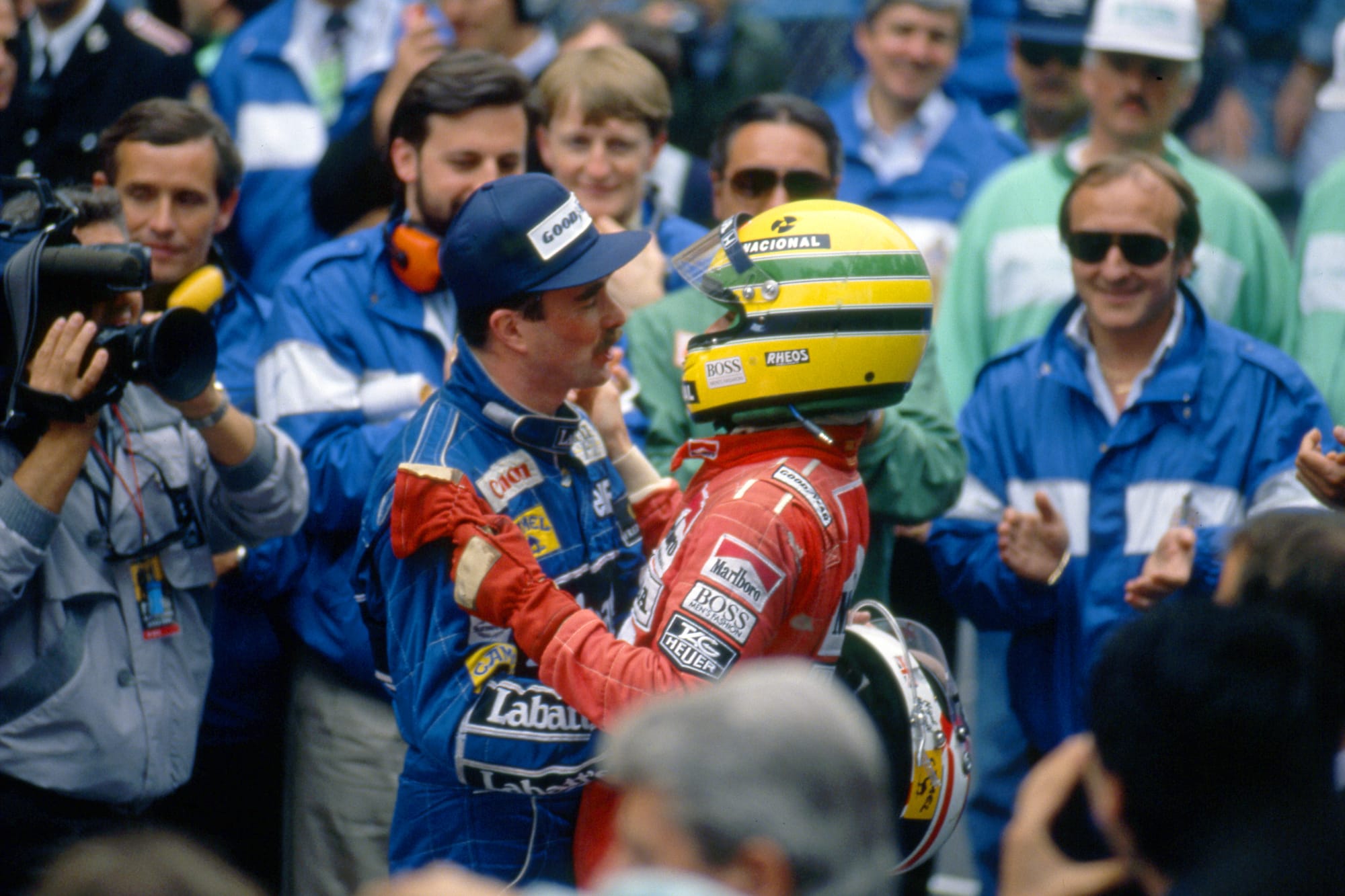
I think that would have been great. As long as you're not offered half your salary, it would have been wonderful. I wouldn’t have a problem at all because I had four world champions as team-mates - Nelson Piquet, Alain Prost, Keke Rosberg, and Mario Andretti - so it certainly would have been fine. But you’ve got to be paid, and paid fairly as well.
When you moved from F1 to CART, was there a change in driving style required or are they similar cars to drive? Did you prefer your time in F1 or CART and which championship gave you more personal satisfaction?
Shawn Keif
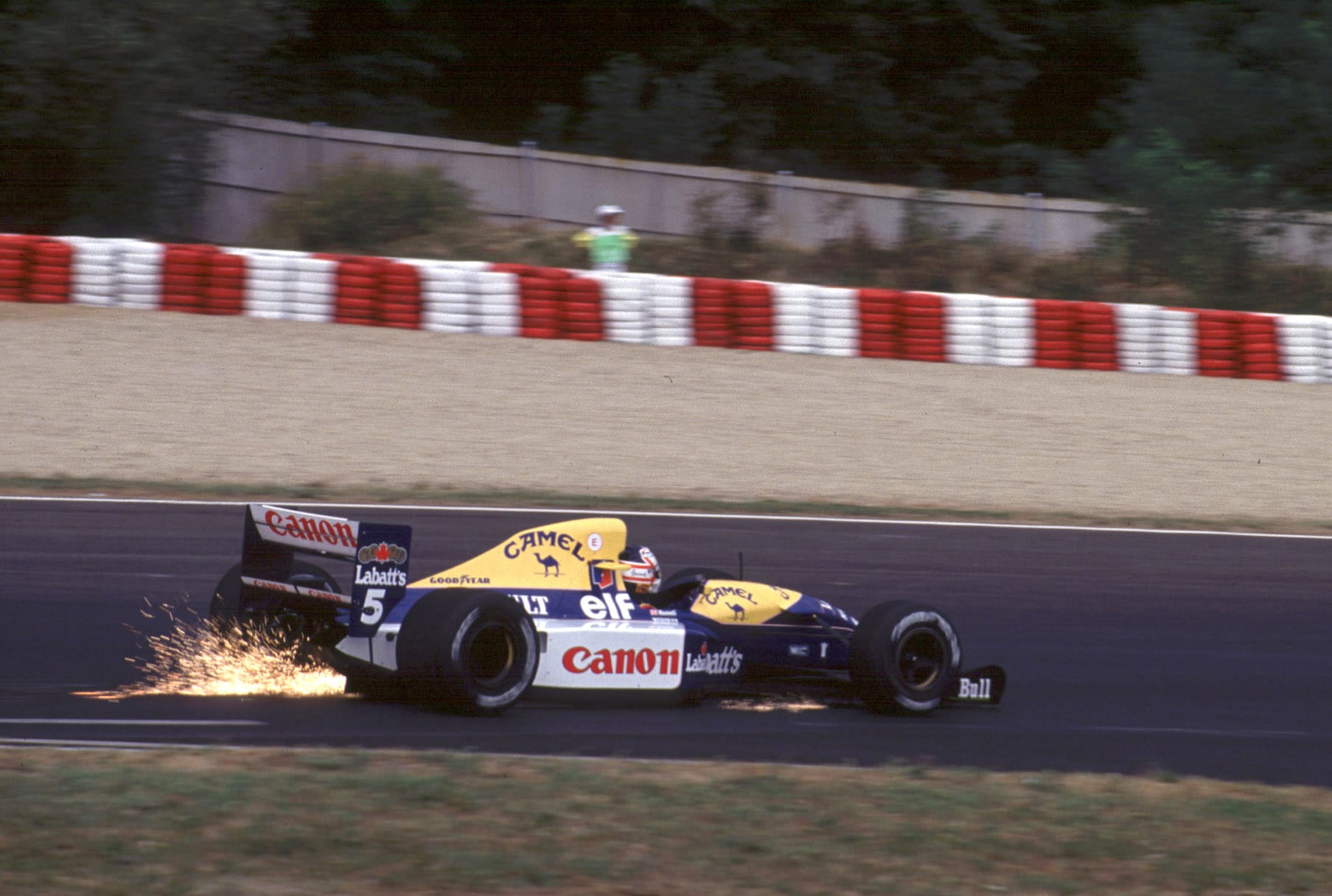
Mixed feelings. Formula 1's the pinnacle of motorsport. IndyCar was great, but it was lethargic. It wasn't a grand stallion on steroids, it was a very good car, a fast car but you had one or two bites at turning into the corners because it was heavy. You had to position the actual car correctly.
With a Formula 1 car if you don't quite get it right, you can have another go and another go. So the Formula 1 car was just brilliant.
The hardest thing I found going over to America is all their circuits go anticlockwise but all our circuits go clockwise. So I had to build up all the neck muscles on the left side of the body as opposed to the right.
What were your emotions after winning first time out with Ferrari in Brazil in 1989? It was the first GP I ever watched and it made me a lifelong fan of yours!
Jon Curry
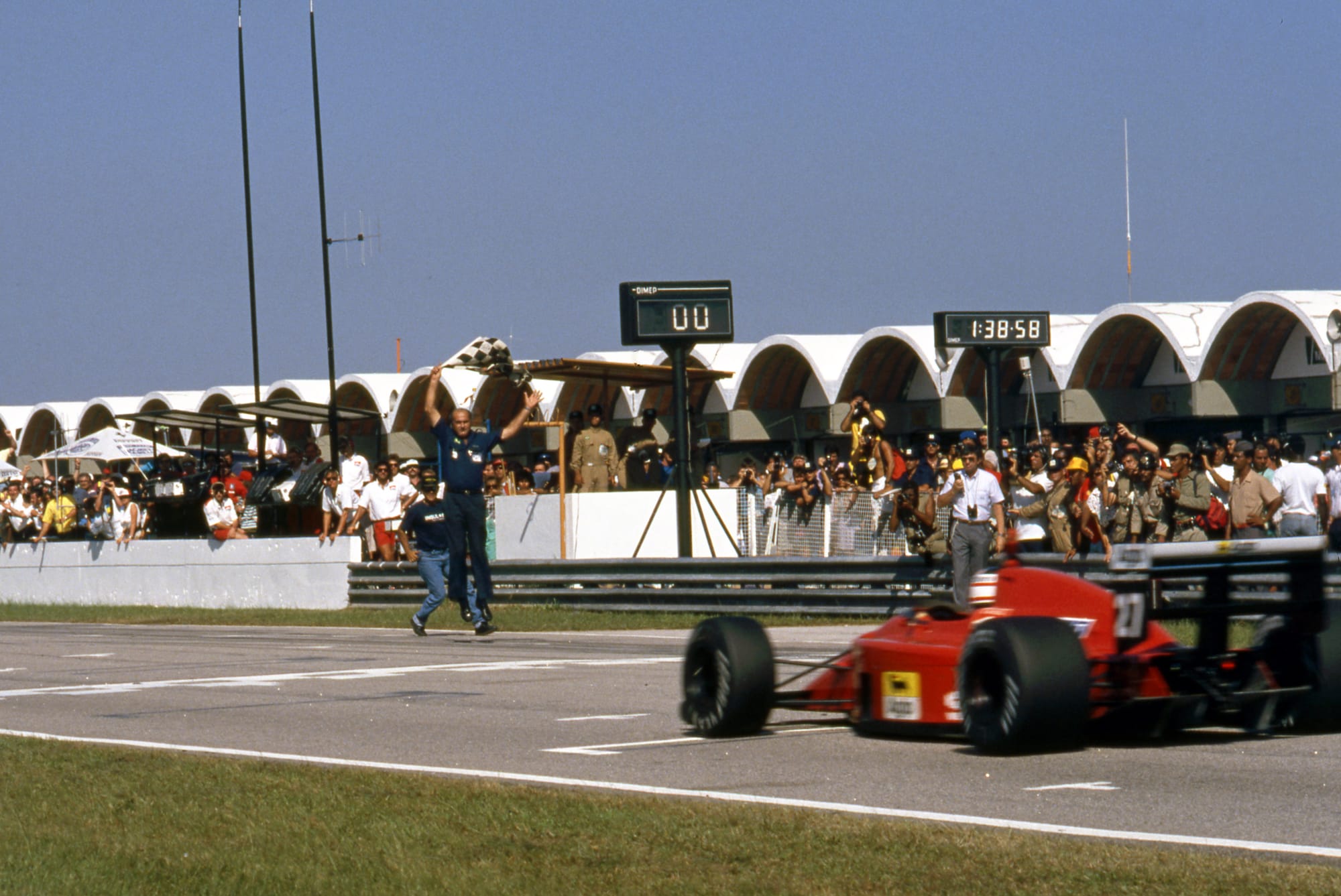
It was like a minor miracle. The car was so unreliable and in the warm-up to the race I only did half a lap and it broke down. So for the car to keep going was just amazing. And to win the race was fantastic. Then I think it took another six races or so before the car finished the race.
You were filmed for a number of superb documentaries by Watershed Pictures between 1989 and 1994 and gave thousands of British fans, including myself, a great behind the scenes insight into your career in F1 and IndyCar during that time. Can you give us some of your best memories and insights on what it was like to give such an in-depth look into your personal and racing life, and do you think you were ahead of your time in doing something that no other F1 driver on the grid was, and the amount of PR it generated?
Scott Woodwiss
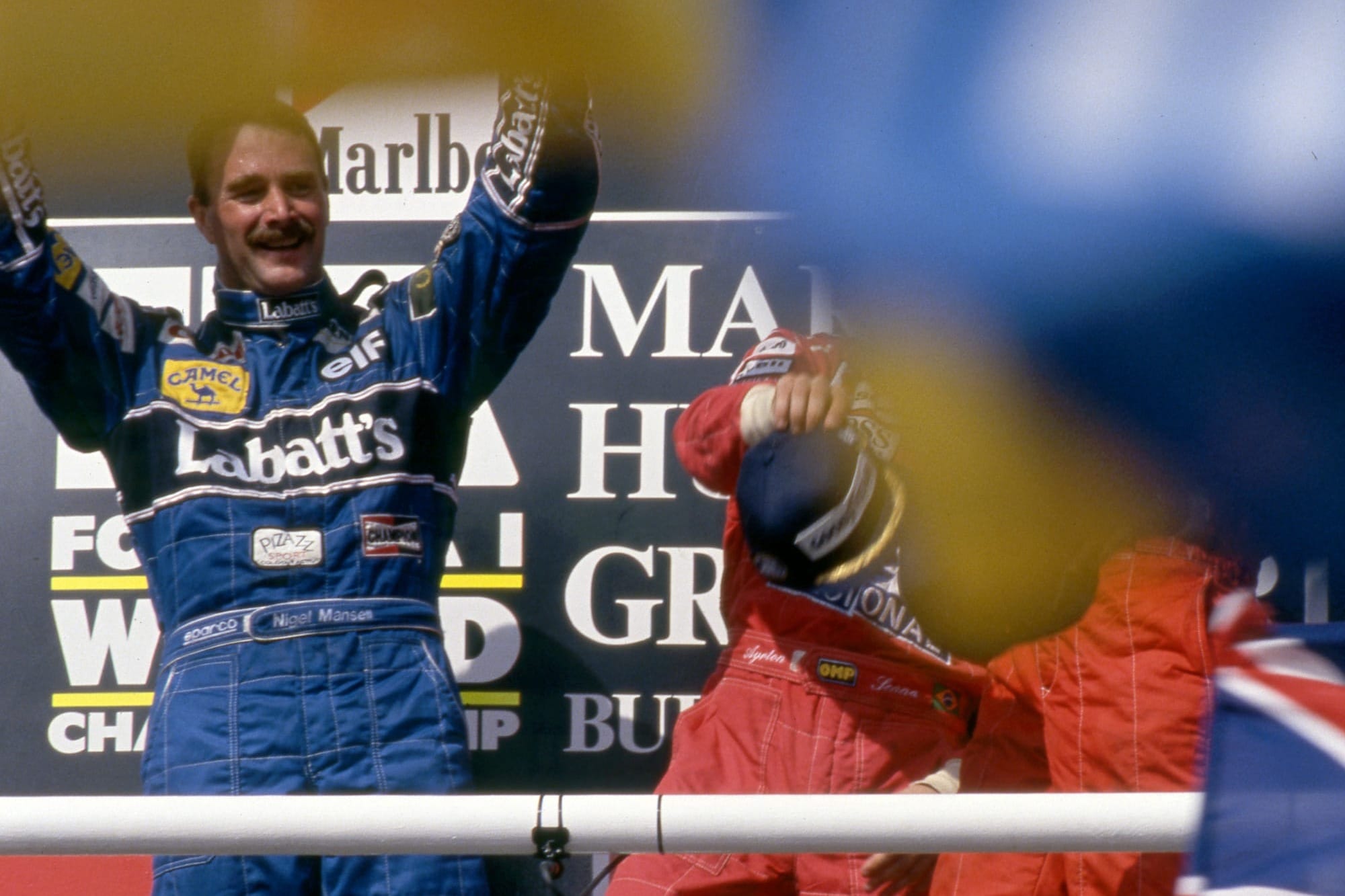
To bring IndyCar to England, or to Europe, was something very, very special, and very, very important so I enjoyed that very, very much. It was educational for all the fans, because it was so different, especially the ovals which were a different technique altogether.
You put a lot of effort into the promotional side, so was that a genuine desire to educate people and also to show that it was a serious championship because some people inevitably thought you were almost going into a backwater? (The Race)
All of the above. Anybody who went over to IndyCar and thought they could blow the doors off is very mistaken. It's a tough series over there and they're very proud of their series. Now it’s growing in stature like there's no tomorrow.
Do you still keep an eye on IndyCar? (The Race)
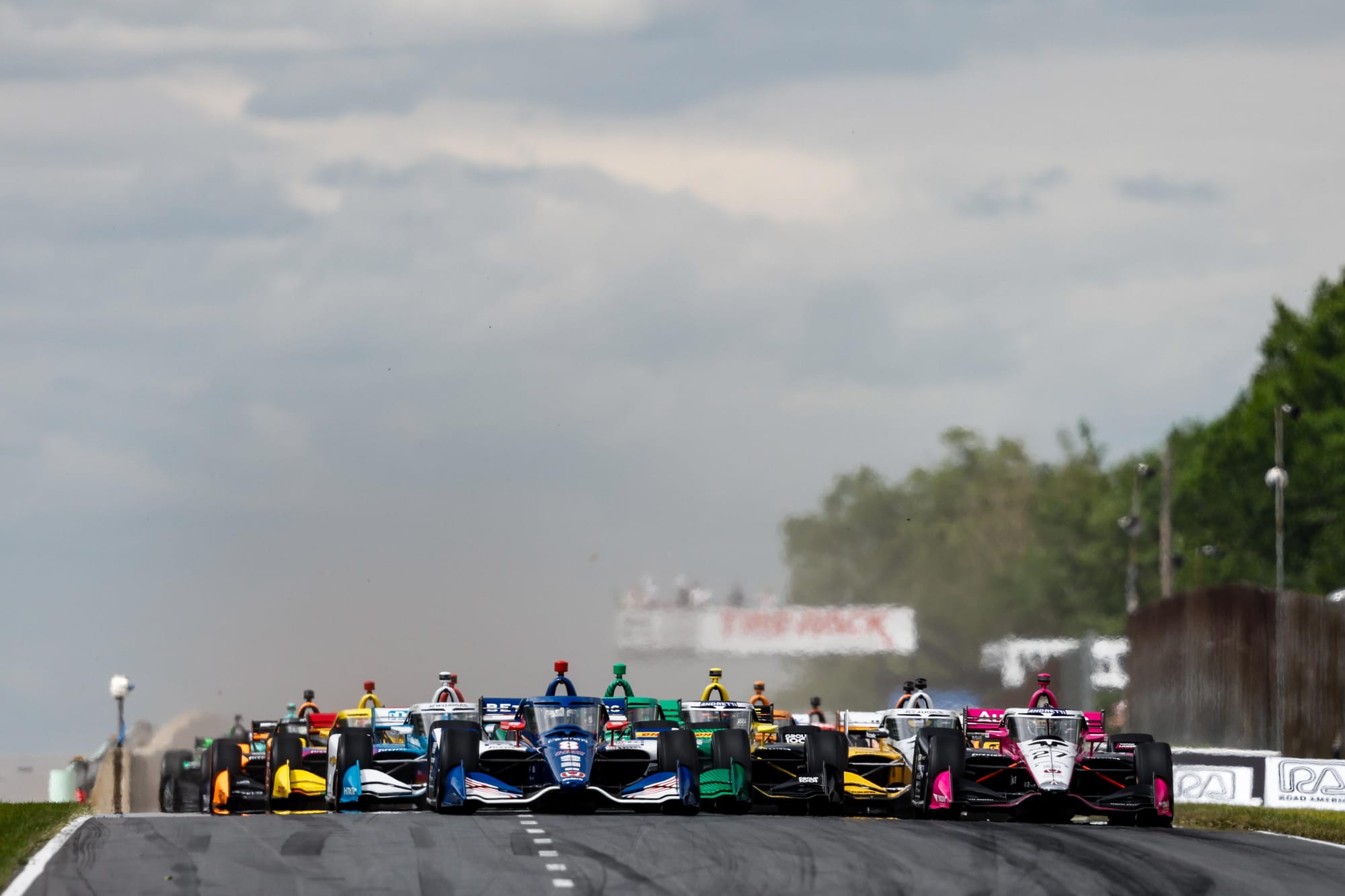
Absolutely, yes. Roger Penske now owns the series and Indianapolis as well and has done an absolutely fabulous job. IndyCar has just gone from strength to strength.
There’s a famous picture of you with NASCAR legend Dale Earnhardt Sr from Michigan in 1993. What did you guys talk about and did you ever want to try one of his stock cars?
Ken Reigel
Dale was a great guy. And that [his death in 2001] was another shock, that shook the world as much as Ayrton did. To lose those two icons, very close to one another. Again, another freak accident. There’s no way he should have been killed.
Can you remember a grand prix where you felt most 'at one' with your car?
Ross Stevenson
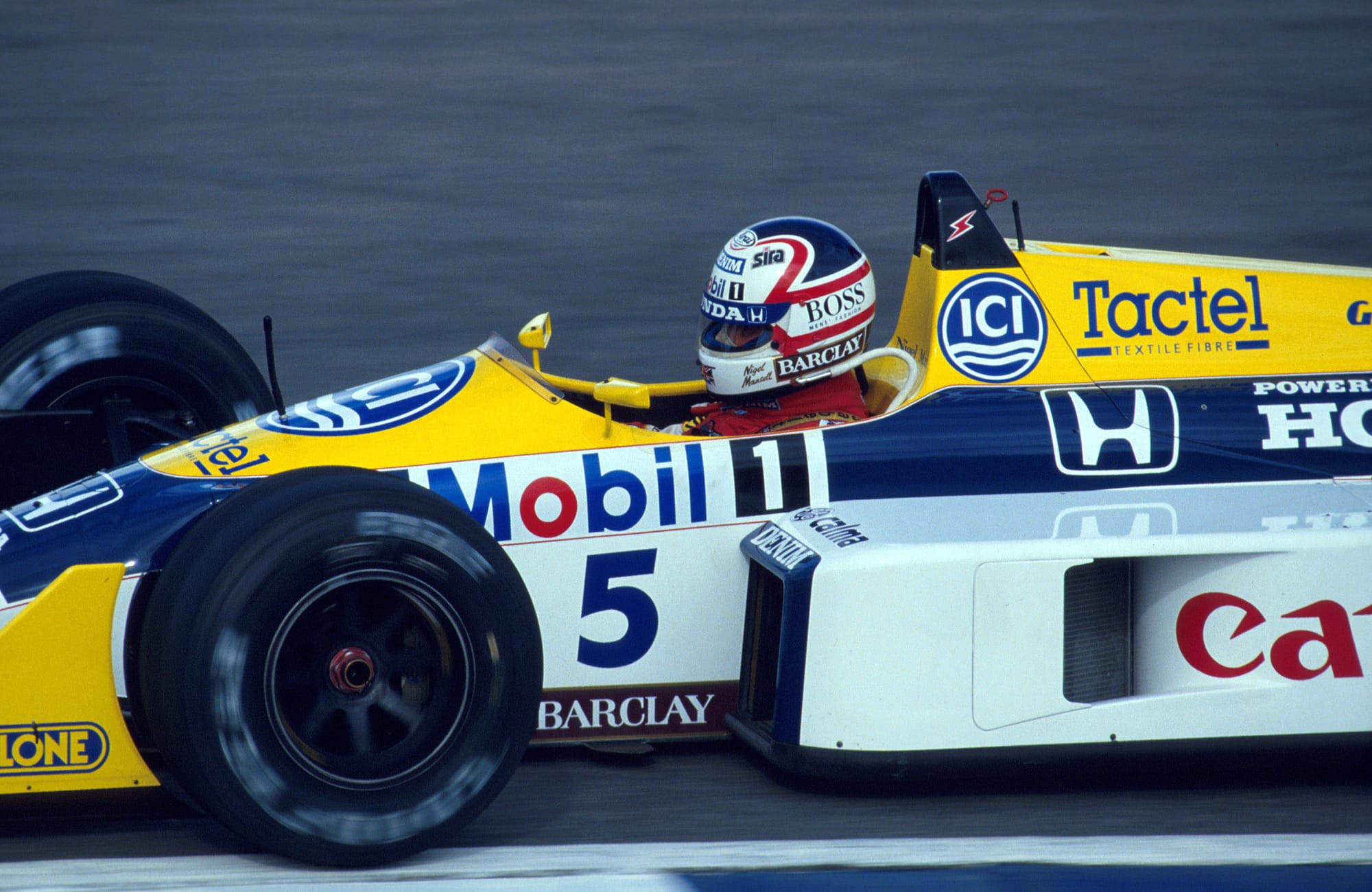
I think the poetry in motion was the last 24-28 laps of Silverstone in 1987, chasing down Nelson Piquet. I broke the track record 11 times in the last 15 laps. I was totally at one with the world and the car and the circuit - flying on steroids. That was just crazy, crazy stuff.
What was your personal weakness as a driver, or your least strongest trait?
Howard Hong
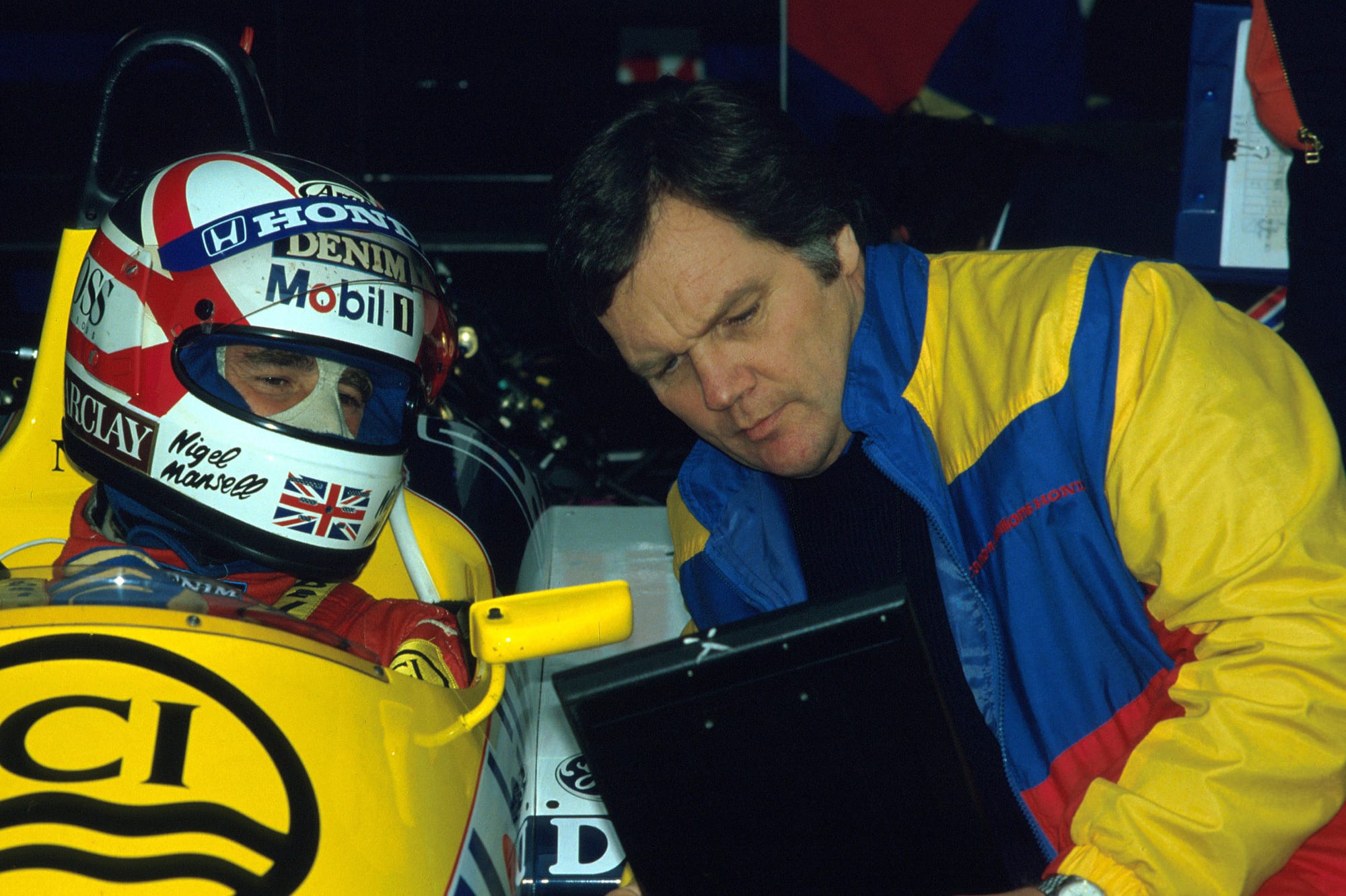
When a driver reaches Formula 1 there's not too many weaknesses in their ability to do a job. I think everybody could be a little bit more patient sometimes. But besides that, your personality and the way you drive the car is what matters. That's why I have legions of fans throughout the world, the Italian fans call me Il Leone because I gave it my all.
Was playing politics maybe a weakness? (The Race)
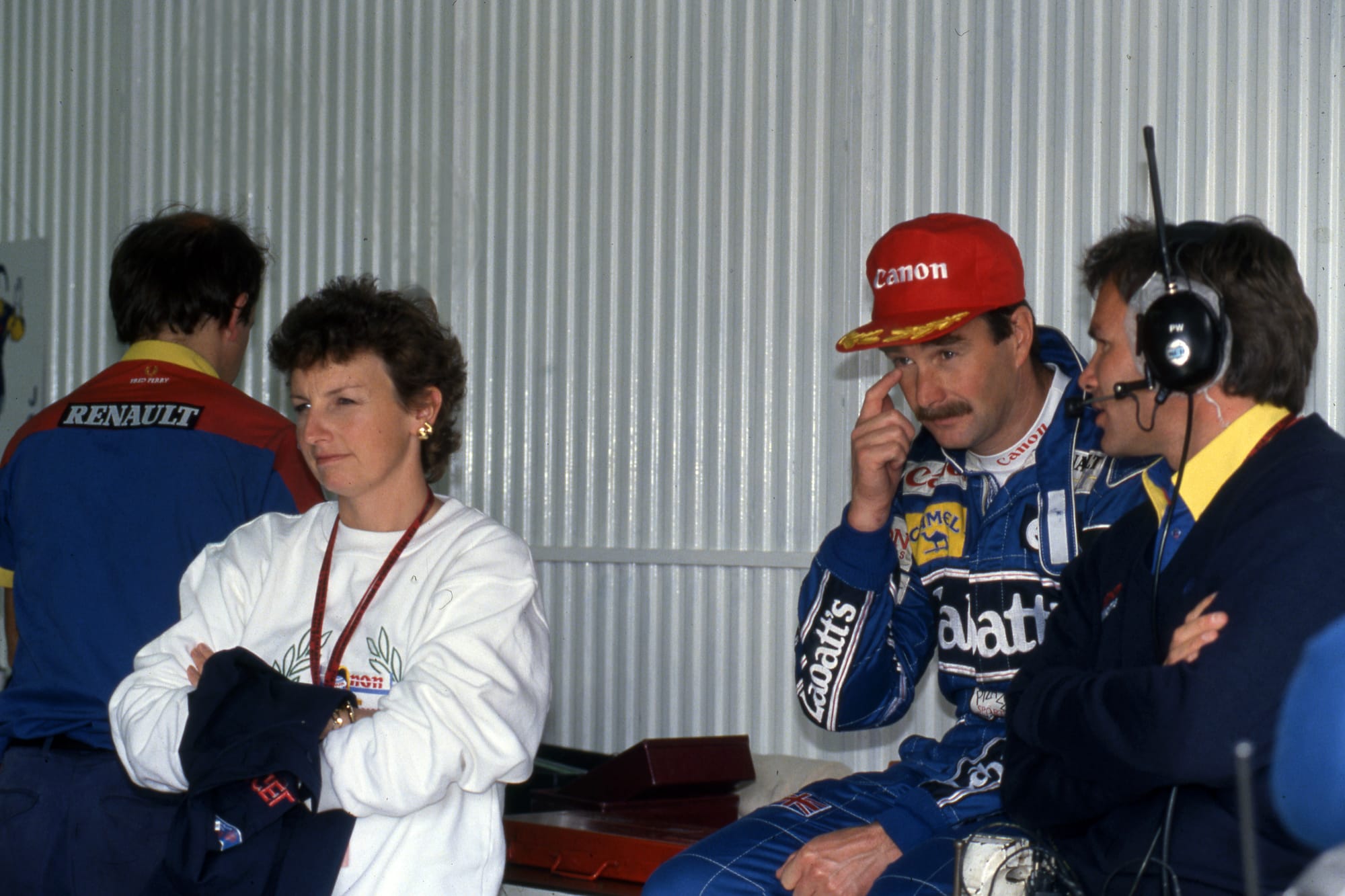
Yeah, out of the car or the politics and, shall we say, skullduggery. I have no time for that. And hindsight being 20/20 I should have paid probably a bit better attention to some of that.
You mention giving it your all and you could certainly grab a car by the scruff of the neck but you obviously needed tremendous feel and sensitivity to do that. So how would you characterise your driving style and how much did you adapt and evolve it? (The Race)
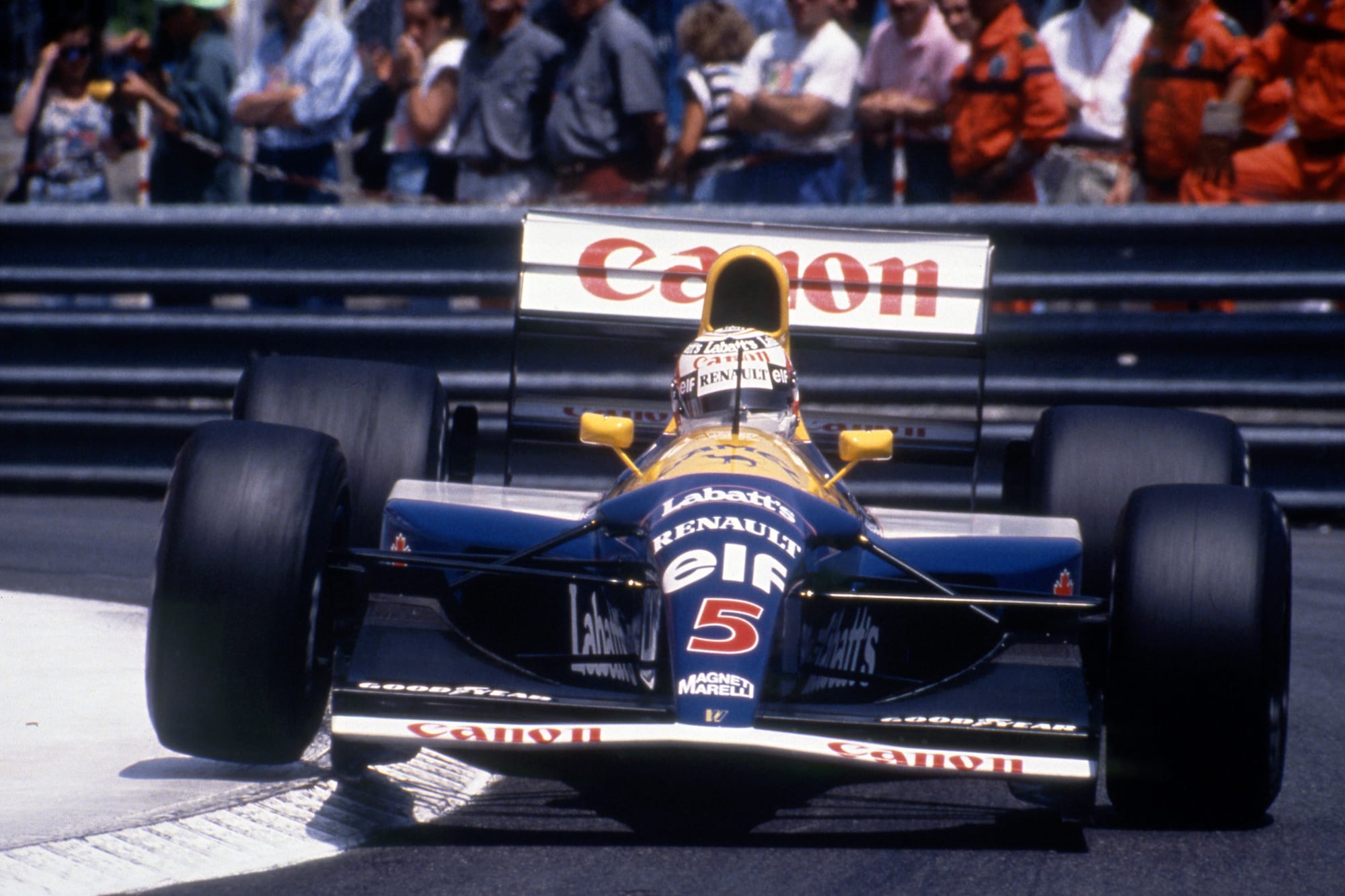
Like anything in life, bad preparation for anything ends up being pretty poor performance. If you prepare well, you do great preparation and you can expect to have a good performance. So you don't leave any stone unturned.
I had several great engineers, David Brown in Formula 1 with Williams was a great engineer and we related to one another. We worked so closely as I did with Maurizio Nardon in Ferrari. Mauricio was a fabulous engineer. And you get results that way.
David and I used to spend hours and hours talking about the car, looking at the car, talking with mechanics, making sure that there wasn't one screw, one wire, one clip on the car that was about to fail. We looked where the next problem was going to come from and we tried to cure the problem before it happened. We were so ahead of the car and trying to be part of the car, living and breathing with the car, as with the tyres, as with the engine, as with the gearbox, everything. And I think that's why we were on top of it as well as we were.
Do you feel as a driver you had quite a wide window in terms of what you could handle in terms of car characteristics? (The Race)
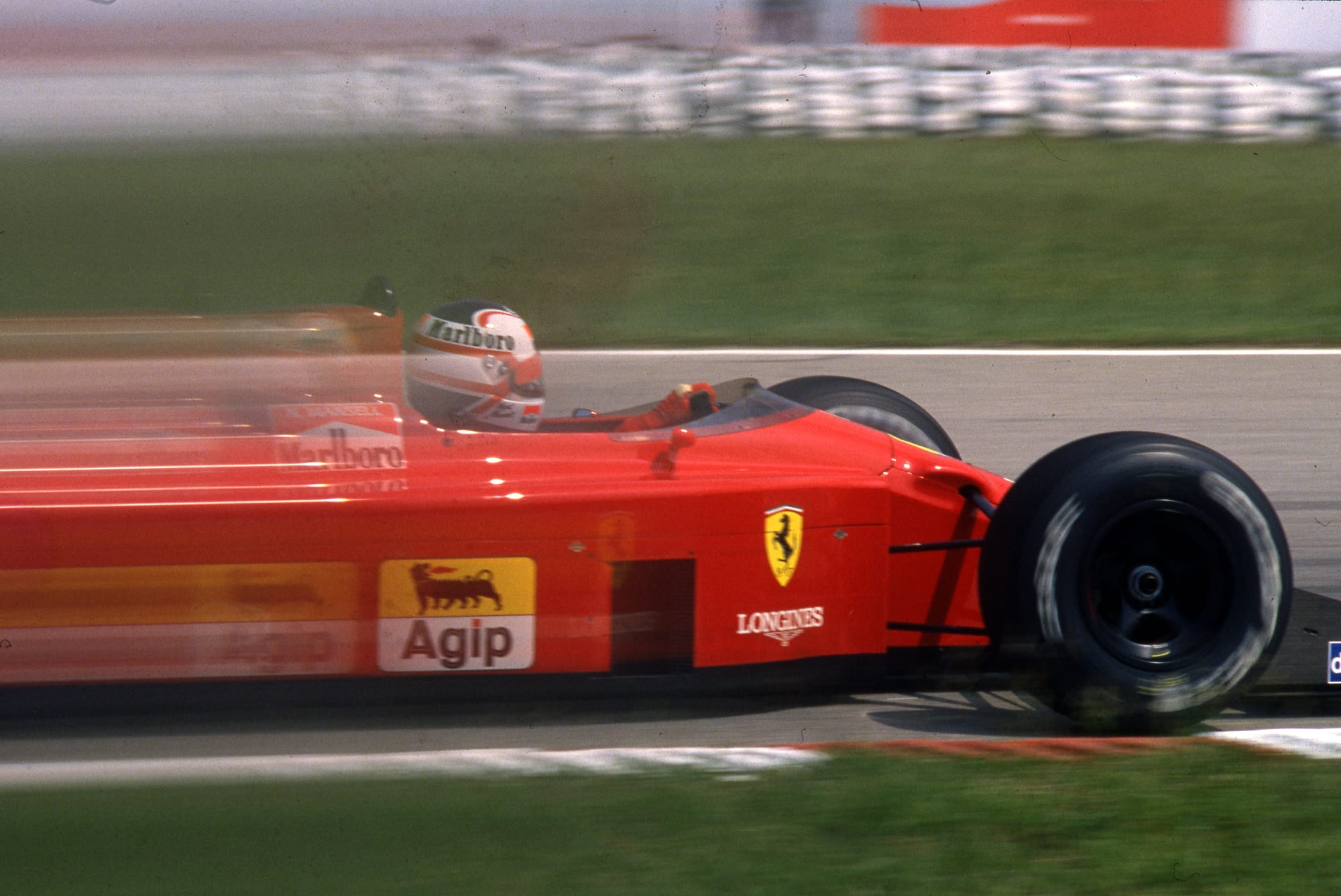
That’s quite an intriguing question, because when we were doing it we didn't have 50 engineers or 30 engineers micromanaging the car with 360 settings on the steering wheel. So when the car went to understeer or oversteer, we had one roll bar, we could adjust the brake balance, but the driver had to adapt his driving style to what the car gave him in terms of grip. So we adapted ourselves to the car, so we micromanaged the car ourselves without any outside help.
Now with the automatic diffs they can get the car balance pretty neutral all the time. So again, it's like Christmas on sticks. A lot of great drivers in the past had to adapt and that's exactly what we did, we adapted to whatever the circumstances were.
The active car was a good example of that. Committing to the corner through sheer force of will knowing it would adjust and give the grip… (The Race)
You've just picked up on a very good significant point there. Yes, you commit into the corner but at the exit the corner, you got a brick wall. If you commit into that corner and you don't get it right, you are going to get hurt. So you're fighting your brain all the time.
Now these guys can do the same thing into that corner knowing full well if they go wide on the end of the corner, for the most part, there's a run-off. OK, street circuits, there's not a run-off, so you're starting to pay attention. I'm not decrying the great work that they do but in our case on all the circuits it was horrendous.
You have to have a different personality to drive those cars. And there's a lot of trust in a Formula 1 car. And the trust is, are you prepared to put it out there? Because if you're not, you're not very quick, but if you do, you can kill yourself.
And you have got to understand also that it wasn't until after 1994 that the circuits became safer and the cars became safer. So back then the drivers had what is known as the pucker factor, where you go into a corner at 200mph and if you screw up, the chances are you aren't going to come out of it alive. So you paid attention.
In this day and age now it's Christmas on sticks with drivers because most of the really dangerous corners are gone. If there is a dangerous corner, at most of them the barriers are 150 to 200 metres away. So the standards of Formula 1 with safety and the FIA are doing an incredible job.
And the manufacturers as well, you look at the cars and see how far the feet are behind the front axle, and the crushable frontal area, the drivers are very, very well protected. Whereas if we look at the cars that we used to drive, sometimes our feet were only about six inches from the front, so we had [barely] any impact [protection] at all. Our feet got broken and that's why I'm hobbling today.
Which drive (in a Formula 1 race) do you think is your most underrated? The 1990 Adelaide race is the one that comes to mind for me, beating Prost to second by just over 30 seconds on a day the Ferrari was clearly very hard on its tyres.
Barney Woodbridge
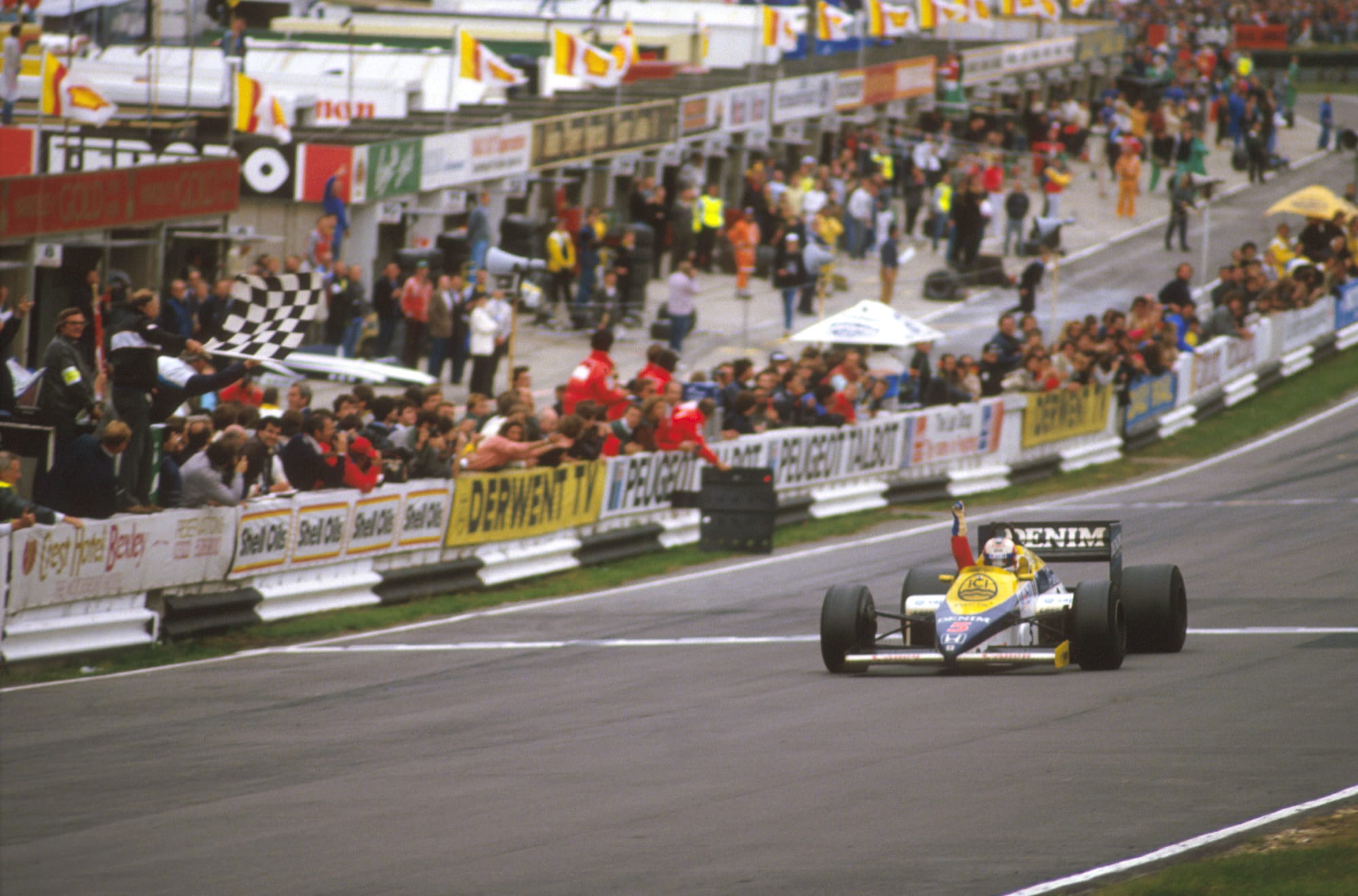
I would say winning the first race at Brands Hatch [the 1985 European Grand Prix]. The pressure on winning your first race is unlike any other pressure of winning a race. Those last few laps, I was just hoping and praying that nothing would go wrong, hitting your spots on the corners and not making the slightest mistake.
The heightened awareness you had knowing that you are going to break your duck, is the car going to finish because in the '80s and '90s the cars were terribly unreliable so that was always in the back of your mind. Winning that first race was something very special.
Did that have extra value because you were underrated by the wider world then? (The Race)
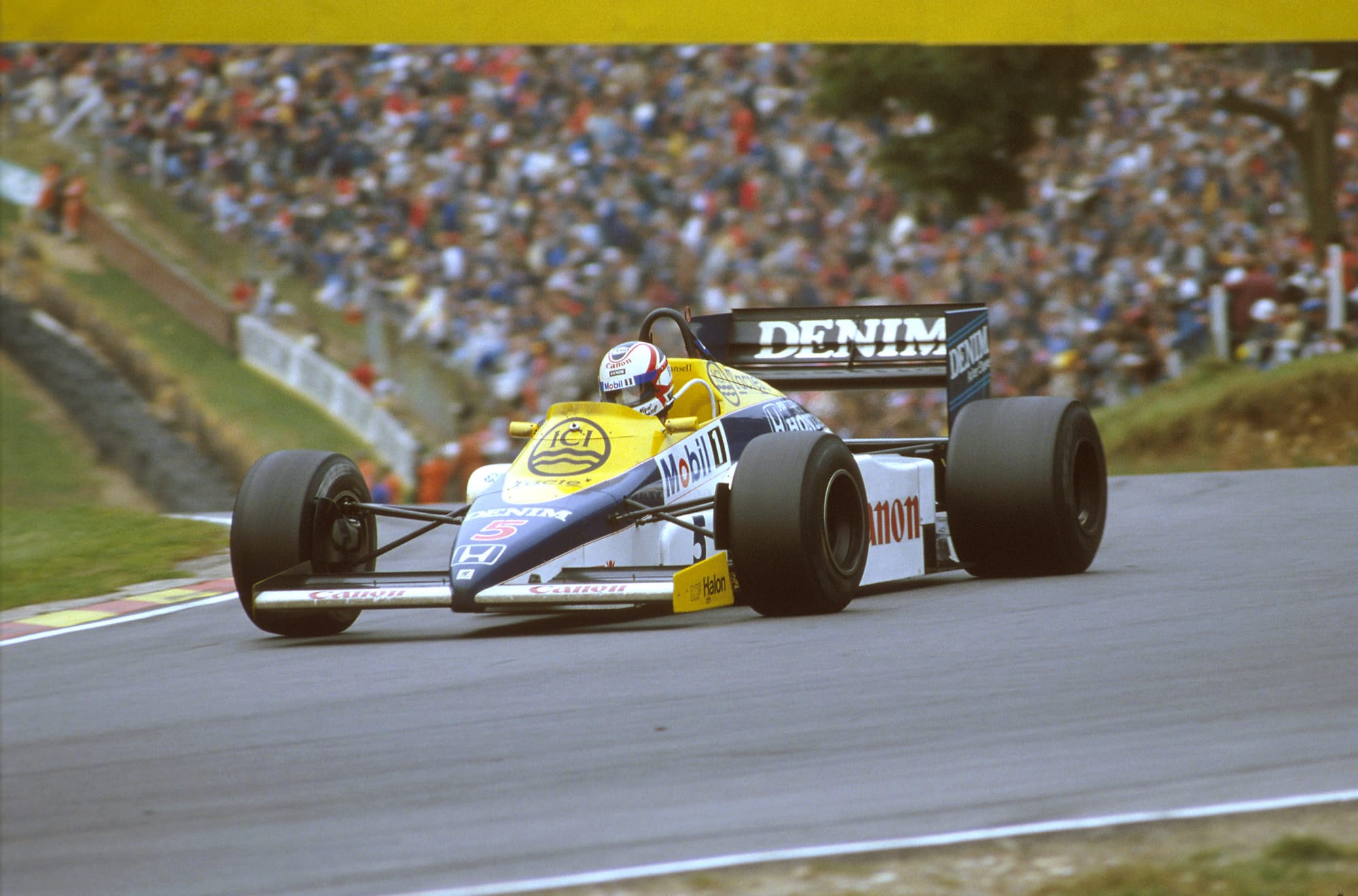
I probably still am now, but that’s their mistake not mine.
That often comes up on our Bring Back V10s podcast because there’s lots of talk about Prost, Senna, Piquet but you were the fourth member of that group… (The Race)
I was the thorn in their side.
Did you enjoy doing that? (The Race)
Absolutely. I was number two driver to those drivers and when you beat the number one driver in the number two car they aren’t going to be your best friend are they? I didn’t work that one out until later either.
MANSELL AND UK YOUTH
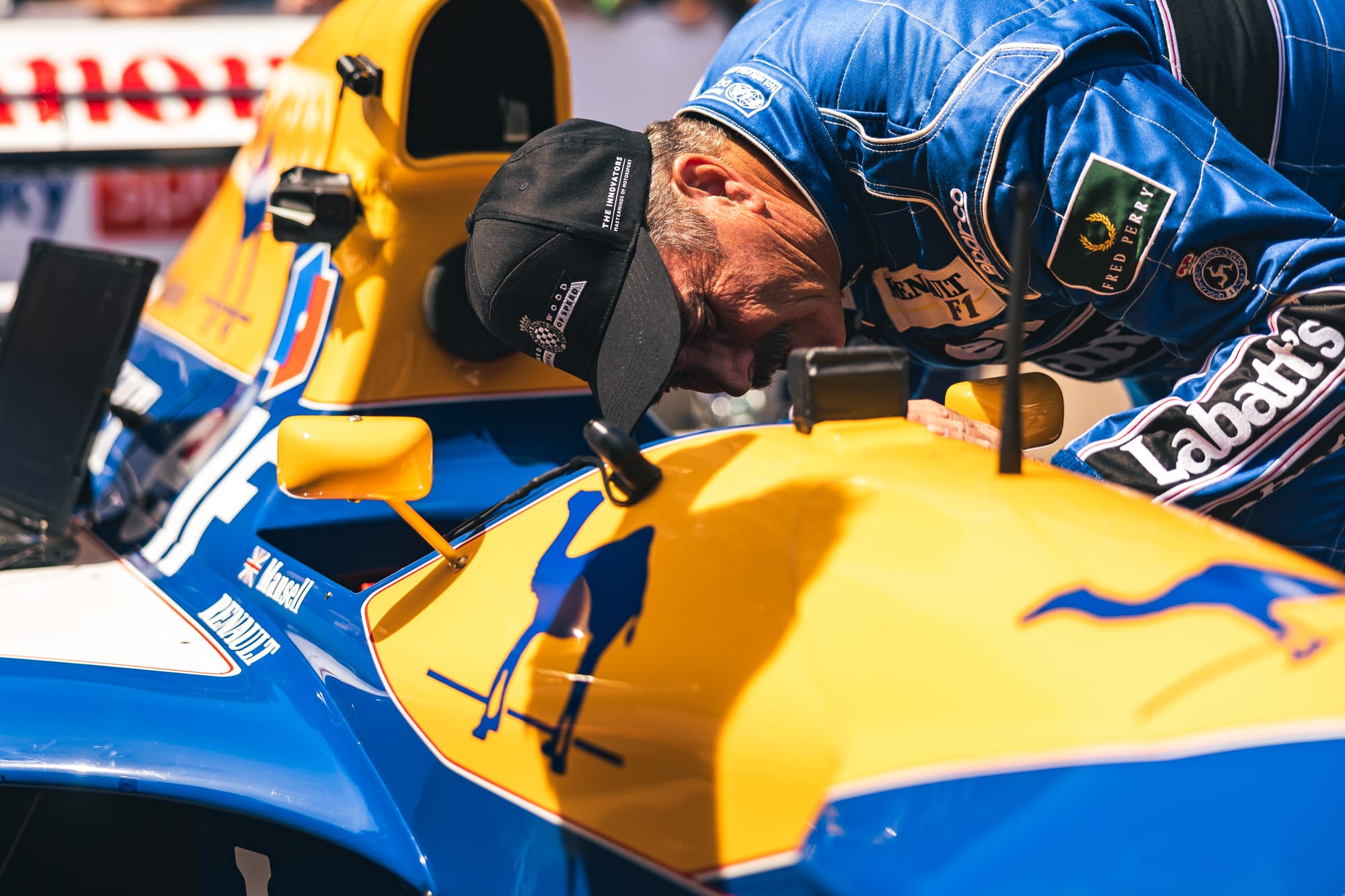
Nigel Mansell has been president of UK Youth since 1999, but his involvement with the charity stretches back even further than that. Mansell describes it as the “natural progression” from early involvement with Save the Children through the Williams team.
“After a number of years with UK Youth on the periphery, I was offered the position of following in the Duke of Westminster’s shoes as president,” says Mansell. “I was quite taken aback, it’s an awesome responsibility. But to think now that it’s 25 years on, wow. I’m so proud of the charity and what we’ve achieved, it’s been astonishing.
“To be able to inspire young people, give them some education and make better life choices, that’s the important thing. There’s so many children out of education, out of employment and if they aren’t educated how can they be empowered to do the right thing?
“There’s so many children on the streets that don’t have homes, they have maybe drug or drink or other problems but UK Youth never turns anybody away. If we can’t help them directly, we find a charity that can. We’re there for everybody.”
Mansell is speaking to The Race at an event held at Williams F1 to raise money for UK Youth, and he’s excited about the prospect of the new facilities that are being worked towards.
“The great thing we’re doing at the moment is that at Avon Tyrrell, which is the headquarters of UK Youth, some 17,000 children go through that facility every year. Since it’s been opened, over half-a-million children have gone through the educational programmes there. You've got archery, climbing, boating, solving problems, forestry work…it’s just incredible.
“We’re trying to build a sports centre for them in the winter so when the weather’s bad they can carry on those learning experiences and play sports. So we’re trying to raise £3million-4million there to build that. It’s going to be marvellous if we can do it.”
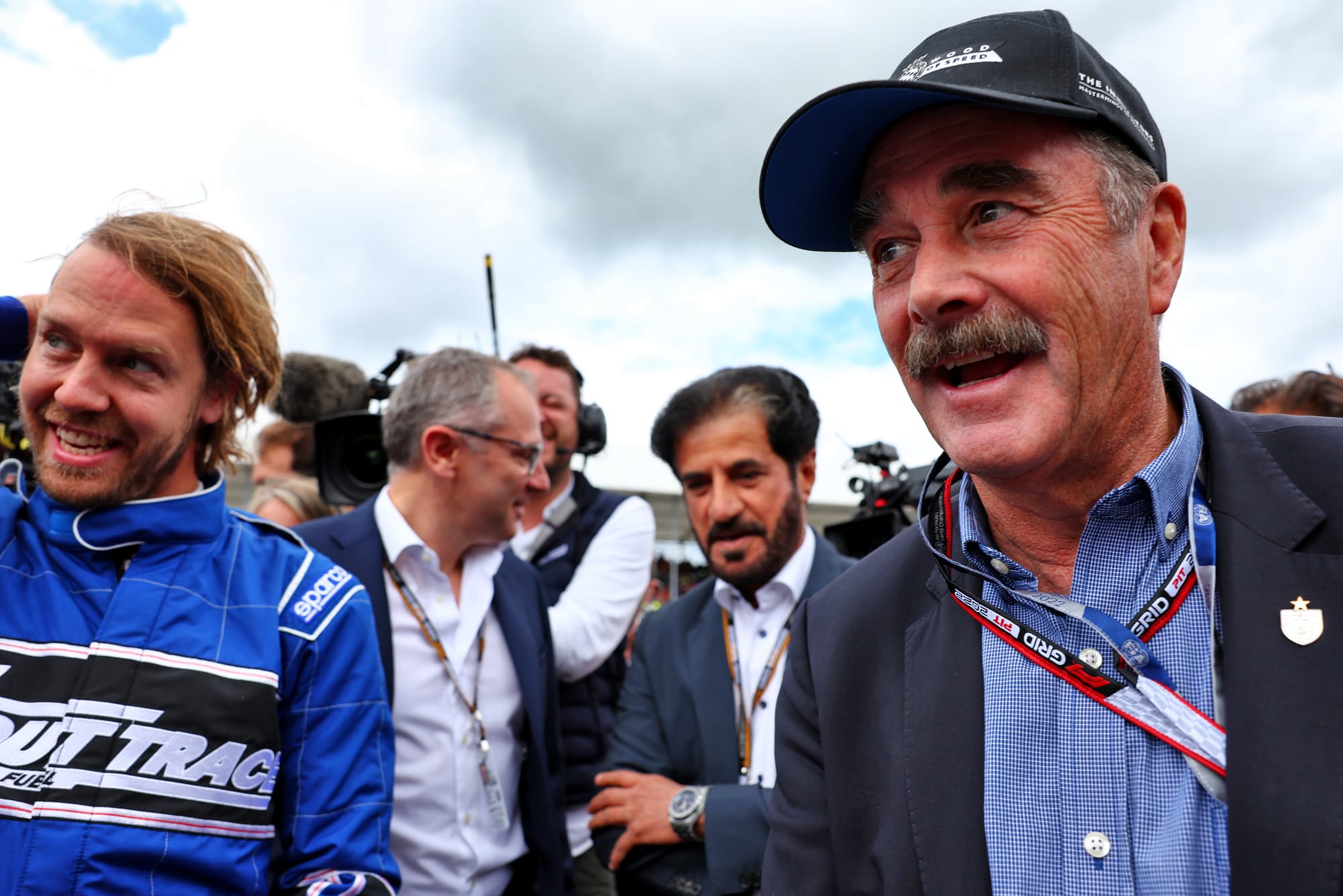
As for Mansell himself, you can’t question his commitment. When asked directly about the desire to give something back amid his own success, he reflects with sincere satisfaction about the many years he has devoted to such work.
“With 30 years of police work as a special, with 40 years with the charity Save the Children and 25 years heading up UK Youth we’ve certainly put a lot of time in,” he says. “And I don’t regret any one bit of it. If anything, I wish I could make two of myself to do more.”


